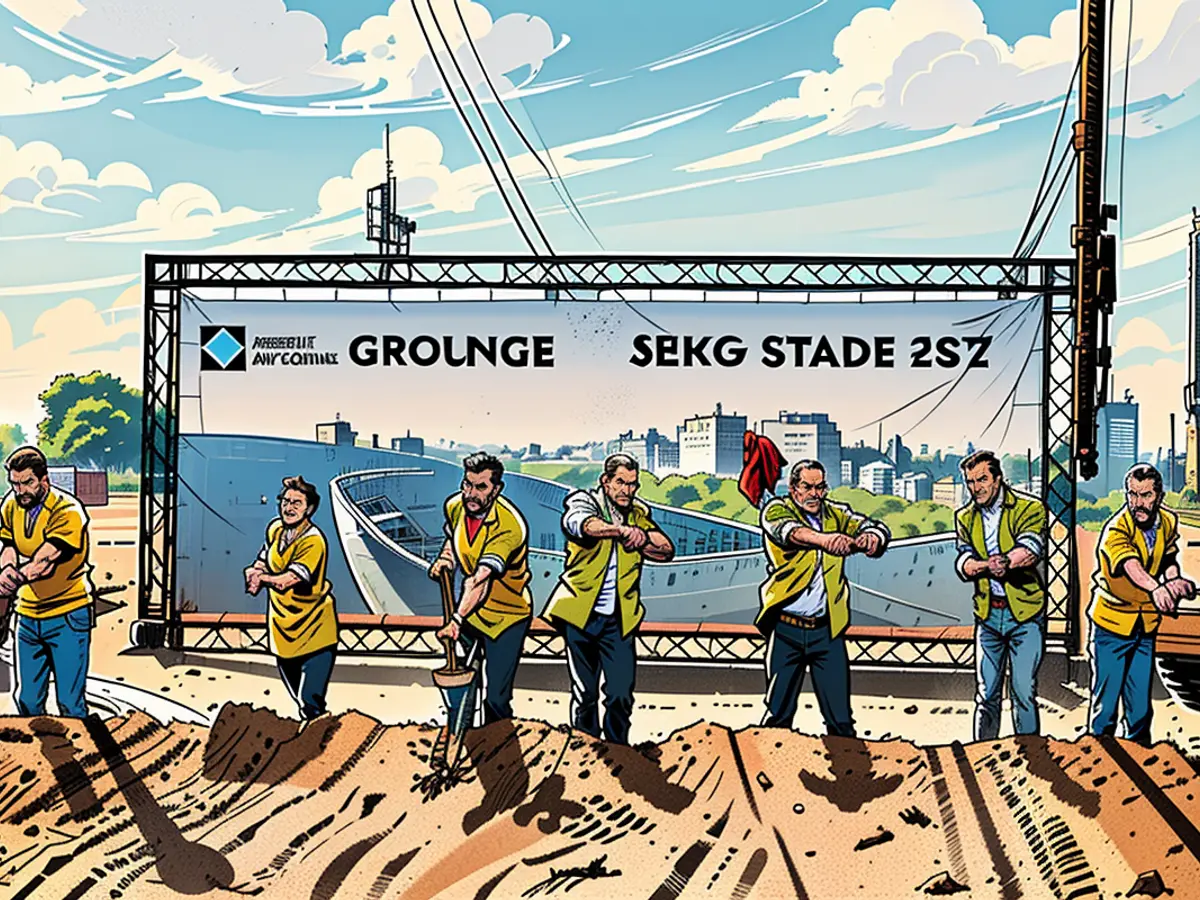Construction of the first onshore LNG terminal begins
To become independent of Russian gas supplies, the German Bund is pushing for the construction of LNG terminals in the North and Baltic Seas. Floating terminals already exist, which are planned to be replaced long-term by three land-based ones. The first construction works have started in Stade near Hamburg.
The official beginning of building the first German LNG import terminal on land has taken place. The terminal in Stade near Hamburg is expected to start operation in 2027. Several private companies are responsible for its construction. The costs, according to their statements, are approximately one billion Euros. Environmental organizations criticize the project because it endangers climate goals. LNG (liquefied natural gas) is liquefied natural gas.
Niedersachsen's Minister-President Stephan Weil stated: "I am very happy that we are showing this in the energy supply sector in Germany. We can do it quickly, we just have to make it happen." The Czech energy company CEZ has booked LNG deliveries in Stade, which is why the Industry Minister of the state Jozef Síkela was present at the construction beginning. Síkela said in German: "Every cubic meter of gas that we don't have to import from Russia is a step towards reducing Russian influence in Europe."
Responsible for the project in Stade is the Hanseatic Energy Hub (HEH) consortium with its headquarters in Hamburg. The Hamburg harbor logistics company Buss-Gruppe, the Swiss private equity firm Partners Group, the Spanish network operator Enagás, and the US chemical company Dow are part of HEH.
Land terminals in Stade, Wilhelmshaven, and Brunsbüttel
In Germany, three LNG terminals on land are planned to replace floating terminals long-term. Besides in Stade, terminals are planned in Wilhelmshaven (also in Lower Saxony) and Brunsbüttel (Schleswig-Holstein). The construction of the terminal in Wilhelmshaven is scheduled to begin in 2026. The Federal Ministry of Economics expects the terminal to start operation approximately in the middle of 2028. Preparatory measures for the construction of the terminal in Brunsbüttel have been running since March. The facility in Brunsbüttel is expected to start regular operation early in 2027.
The fossil energy carrier LNG is cooled down to less than minus 160 degrees Celsius at extreme temperatures and loses a significant portion of its volume from the gaseous state. One cubic meter of gaseous substance becomes one cubic meter of liquid LNG. After transport in special tanks, LNG is converted back into the gaseous state at terminals at the destination and fed into the natural gas network - or directly used as fuel and energy carrier. Due to the CO2 burden through transport and combustion, the raw material is politically controversial. Critics also refer to the fact that more imports would promote the expansion of the controversial US LNG and fracking industry. The project promoters reject this.
The 'Attack on Ukraine' has highlighted the importance of diversifying gas supplies, leading countries like Germany to push for LNG terminals. The LNG terminal in Stade is a significant part of this plan, aimed at reducing dependence on Russian gas supplies. The construction of the LNG terminal in Wilhelmshaven is also scheduled to begin, with the aim of starting operations around 2028, contributing to Germany's energy independence. This shift towards LNG as a primary energy source could have significant implications for the German economy, as noted by Minister-President Stephan Weil.








